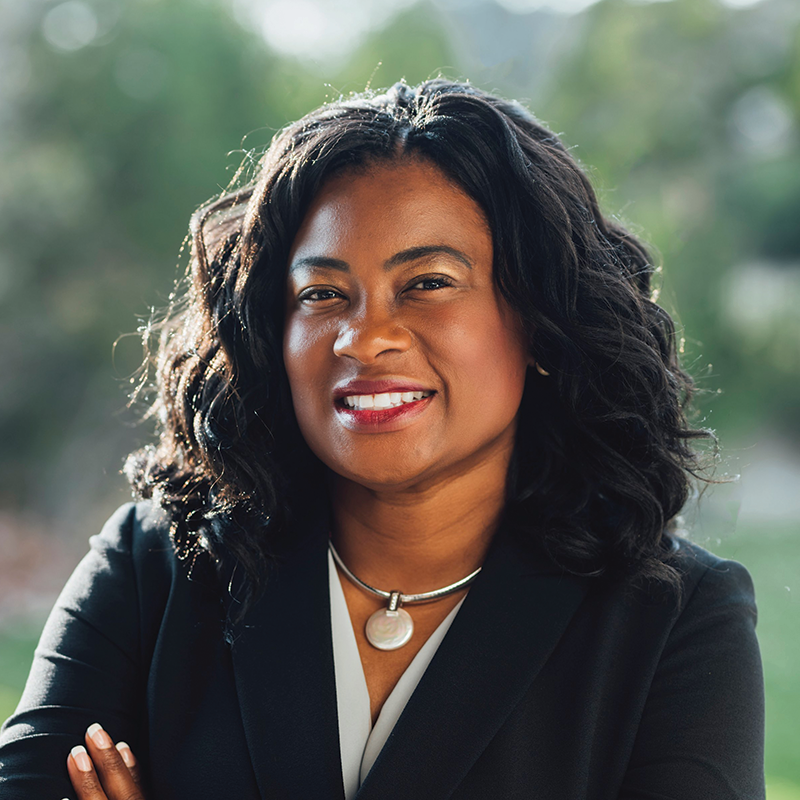
Seeing people who looked like me pursuing an engineering degree gave me a sense of belonging.
Alice Sesay-Pope (’95 chemical engineering)
Senior Vice President and Global Head of Contact Centers, VISA
Growing up, going to college was never optional. My parents have degrees and expected the same from their children. I was focused on studying and pursuing a career that fit my academic strengths and interests; because I excelled in math and chemistry, I decided to become a chemical engineer.
Maryland appealed to me because it was affordable and close to home. I wasn’t at all prepared for the subtle but persistent racism I experienced on an almost daily basis. In 1990, there may have been four or five Black students in classes of 400. I remember a professor telling me, “Give yourself a break. This is hard stuff—even a lot of white students don’t make it.” No wonder I was always having some sort of identity crisis, questioning if I was smart enough or if I really belonged there.
That’s why the Center for Minorities in Science and Engineering played such an important role in my collegiate life. Seeing people who looked like me pursuing an engineering degree gave me a sense of belonging. Rosemary and LaWanda always had encouraging remarks and opportunities to help me develop my leadership skills. Whenever I wanted to throw in the towel, they found a way to reinforce that I belonged. I took that with me into the corporate world. I will always do whatever I can for the center because they did so much for me.
Top